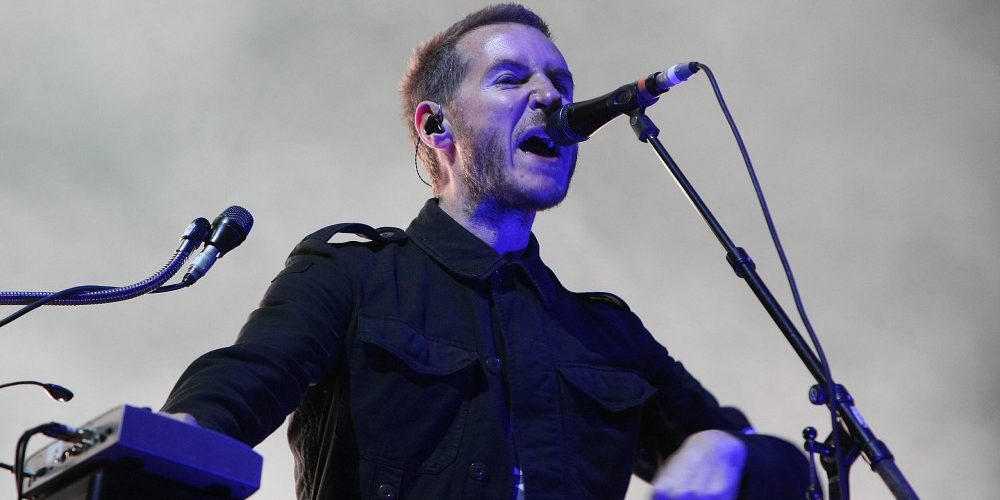Massive Attack call on government to cut carbon emissions at concerts
Massive Attack are calling on the government to introduce a plan to cut carbon emissions at concerts.
It comes after the band commissioned a report on carbon emissions in the music industry.
The report entitled ‘Roadmap To Super Low Carbon Live Music’, produced by the Tyndall Centre for Climate Change Research recommended bands should ditch private jets and reduce the amount of kit they bring on tour.
But Rob Del Naja also criticised the government for not doing enough to support the industry to reduce carbon emissions.
“Where’s the industrial plan for the scale of the transformation that’s required for the UK economy and society? It doesn’t seem to exist,” he told The Guardian.
“The live music industry, especially after Brexit, is so important to national identity and self-esteem. It’s one of the few areas you could describe as genuinely world-class and has a vast social and economic value, as well-reported, generating over £4.6bn for the economy every year and employing thousands of dedicated people.

“But where is the government planning to support the rate of adaption we’re going to need to hit compatibility with [the Paris agreement]? It doesn’t seem to exist. The data [from the report] is not surprising, it’s the strategy that’s missing here.”
Massive Attack, who have long been vocal supporters of the anti-climate change movement, announced last year that they would embark on a European tour by train in a bid to lessen their carbon footprint.
Speaking about how the report came together, Del Naja said: “We looked at our last tour and thought, you know, we’ve allocated x amount of money based on the calculation of the carbon we produced in the tour in 2018.
“And then it was like, are we just going to go on another offset, or should we do something a little bit more interesting and radical? The proposition to go to [the Tyndall Centre for Climate Change Research at the University of Manchester] was suggested to us and we thought that would be a good thing to do, because how many times have we sat in an interview and said we would love to do something but we don’t know what to do?”
Prof Carly McLachlan, who led the research, said the report was about “bringing together a sense of the scale and urgency” of the work that needed to be done and trying to set new industry standards.
Earlier this year, Del Naja criticised the live music industry’s response to climate change, saying “one band not touring doesn’t change a thing”.
He also said he was “pretty livid” over the industry not meeting pledges to reduce its carbon footprint, highlighting Coldplay’s decision to stop touring until they could make it “environmentally friendly as possible”.
